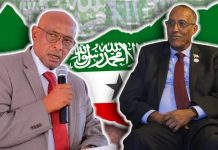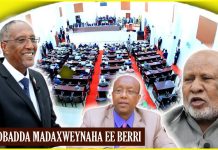Informing humanitarians worldwide 24/7 — a service provided by UN OCHA <!– TEMPORARY – COVID-19 – disabled – 2022/03/31 RW COVID-19 page: Find latest updates on global humanitarian responses –>
Find help on how to use the site, read terms and conditions, view the FAQs and API documentation.
Access your account or create a new one for additional features or to post job or training opportunities.
Latest humanitarian reports, maps and infographics and full document archive.
List of countries covered by ReliefWeb.
List of alerts, ongoing and past disasters covered by ReliefWeb.
List of organizations that are actively providing ReliefWeb with content.
Curated pages dedicated to humanitarian themes and specific humanitarian crises.
Open job opportunities in the humanitarian field.
Open training opportunities in the humanitarian field.
Somalia
I. Introduction
1. The present report is submitted pursuant to paragraph 16 of Security Council resolution 2540 (2020) and paragraph 41 of resolution 2568 (2021). It provides updates on the implementation of those resolutions, including on the mandates of the United Nations Assistance Mission in Somalia (UNSOM) and the United Nations Support Office in Somalia (UNSOS). The report covers significant developments from 8 May to 31 July 2021.
II. Political, security and economic overview
A. Political developments
2. Progress was made towards holding the delayed elections. The National Consultative Council met between 22 and 27 May. It brought together Federal Government and federal member state leaders, the Governor of the Banaadir Regional Administration and the Mayor of Mogadishu. It reached an agreement to resolve the contentious issues in the implementation of the agreement of 17 September based on the recommendation made by the technical committee in Baidoa. Those issues included the composition of electoral management and dispute resolution teams, the composition of an electoral management committee on “Somaliland” seats and arrangements for holding national elections in the Gedo Region of Jubbaland. The Council reiterated its commitment to safeguarding the 30 per cent quota for the parliamentary representation of women, but fell short of identifying an implementation mechanism. Somali leaders also agreed upon a road map towards completing State-building, including a timeline for crucial national priorities.
3. On 29 June, the National Consultative Council concluded a follow-up two-day summit in Mogadishu and issued a revised electoral timetable, scheduling the elections for the Upper House for 25 July, the elections for the House of the People between 10 August and 10 September, the swearing-in of parliamentarians and the election of the Speakers of both Houses for 20 September and the presidential elections for 10 October. It also announced a 50 per cent reduction in the candidate nomination fees for women candidates.
4. On 29 June, following the summit, the Prime Minister, Mohamed Hussein Roble, appointed a four-member regional ministerial reconciliation committee for Gedo Region, tasked with ensuring a conducive environment for elections in Gedo, especially in the Garbahaarrey district.
5. On 10 July, the Prime Minister concluded a four-day visit to Jubbaland, including the Garbahaarrey district, where he discussed the implementation of the electoral agreement and reconciliation efforts. The reconciliation committee, comprising ministers from four federal member states, visited Garbahaarrey on 14 July, in line with the decisions of the National Consultative Council, to prepare for the elections.
6. Elections for the Upper House were scheduled to begin on 25 July, but faced some delays. On 29 July, the first round of the Upper House elections took place in Jubbaland, with four seats out of the eight allocated to Jubbaland contested and filled.
7. On 14 June, the Ministry of Foreign Affairs of Kenya formally accepted an invitation by the Federal Government to reopen its embassy in Mogadishu. The invitation, issued on 12 June, was in response to the decision taken by the Government of Kenya on 10 June to reopen its airspace to flights from Somalia.
8. On 12 June, the Hirshabelle Vice-President, Yusuf Ahmed Hagar “Dabageed”, met for the first time with General Abukar Warsame “Huud” in Beledweyne, Hiraan Region, following the latter’s demands for a greater role for the Hawadle clan in the power-sharing arrangements in Hirshabelle. General Huud called for the involvement of leading elders of the clan in resolving the dispute with the Hirshabelle Administration, which centres on the question of whether the state capital and presidency should be in an area with a significant population from one clan. The Office of the Prime Minister is engaged in resolving the dispute and mediating the increased tensions that occurred early in July between militias loyal to General Huud and the Administration.
9. On 31 May, “Somaliland” held long-delayed joint parliamentary and local council elections. Sixty-five per cent of registered voters cast their votes to elect 82 members of the House of Representatives and councillors for 21 districts. On 5 June, the results were announced, with the opposition winning 52 of the 82 parliamentary seats. No woman was elected to Parliament, but a minority clan candidate was elected to the House of Representatives and a woman as a mayor. The two opposition parties formed a coalition and won mayoral positions in five of the seven major towns, including the capital, Hargeysa.
10. The United Nations provided technical and advisory support to the Office of the Prime Minister and the newly appointed technical electoral support team in preparing for both National Consultative Council summits. Separately, together with the representatives of the African Union Mission in Somalia (AMISOM), the Europ ean Union and the Intergovernmental Authority on Development, my Special Representative visited the federal member states to encourage continued constructive engagement in the electoral preparations.
Somalia
Somalia
Somalia + 1 more
Somalia
ReliefWeb's blog
ReliefWeb Labs projects explore new and emerging opportunities to improve information delivery to humanitarians.
Learn more about ReliefWeb, leading online source for reliable and timely humanitarian information on global crises and disasters since 1996.
ReliefWeb's terms & Conditions.
Contact us.
Service provided by UN OCHA
OCHA coordinates the global emergency response to save lives and protect people in humanitarian crises. We advocate for effective and principled humanitarian action by all, for all.
ReliefWeb's Terms & Conditions.
© 2022 all rights reserved.
Home Uncategorized Situation in Somalia – Report of the Secretary-General (S/2021/723) – Somalia –...






















